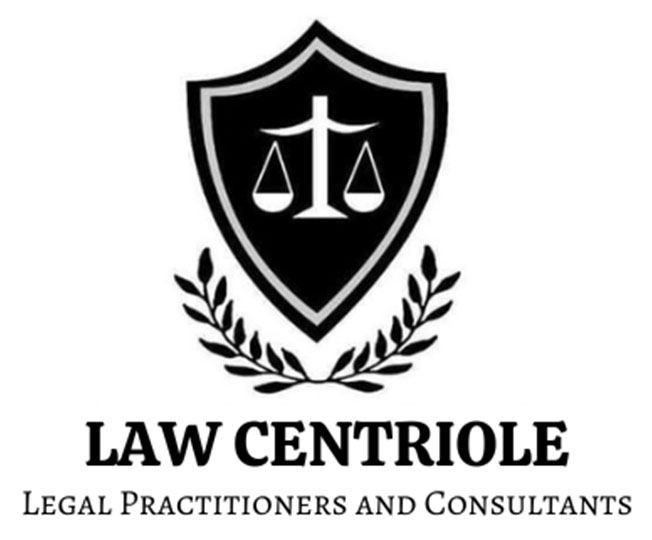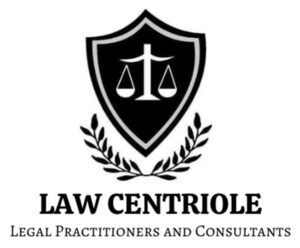FAQ
Toggle
First, refrain from making any statements.
Second, insist on your right to legal representation and inform them you would like to call your Attorney.
Section 35(2) of the Constitution of the Federal Republic of Nigeria, 1999 (as amended) protects your right to silence until your lawyer is present.
Ensure you remain calm and do not attempt to run or physically assault law enforcement agents.
Obtain information about the location of their office or have your Attorney speak with the officers in your presence.
Do not make a statement at their office until your Attorney arrives.
In Nigeria, an agreement is generally considered enforceable if it meets the requirements for a legally binding contract. To be legally binding, a contract must have four key elements:
- Offer and acceptance: One party must make an offer, and the other party must accept the offer.
- Consideration: Both parties must exchange something of value, such as money, goods, or services.
- Intent to create legal relations: The parties must have an intention to enter into a legally binding agreement.
- Capacity: Both parties must have the legal capacity to enter into a contract, which means they must be of legal age and must not be under any legal disability that prevents them from entering into a contract.
In addition to these general requirements, there are some specific types of contracts that have additional requirements in order to be enforceable in Nigeria. For example, contracts for the sale of land must be in writing and must be signed by both parties.
It is important to note that when entering an agreement, it is important to have a lawyer who reads through the terms and legal usages in the document. This will protect you from any term written into the contract which was not discussed at the preliminary stages.
The case of Tejumola & Sons V. UBA Ltd. comes to mind here. In this case, the plaintiff entered into an agreement with the defendant, a bank. However, the defendant used a term in the contract.
The implication of this term is that they’re not abound by the terms of the current agreement until a new one is drawn up.
The plaintiff acting on the agreement, performed his part under the agreement, spending millions. Unfortunately, the bank decided not to proceed with the agreement despite all that the plaintiff had spent.
The case went up to the Supreme Court. In the judgement of the Apex court, it was held that the term used by the bank was clear. However, not having a lawyer read the contract caused the plaintiff to act on the contract despite the provision.
The bank won that argument despite the fact that the plaintiff had spent more than two decades fighting this case in court and had also spent a lot of money in the process.
Don’t be a victim. Get a lawyer before you sign an agreement.
No. Under the Law, no person can be arrested in place of another.
Each individual is responsible for their own actions and cannot be held accountable for the actions of another person. If there is reason to suspect that a specific individual has committed a crime, they should be the one arrested and charged with the crime.
This is the Law by the provisions of Section 4 of the Administration of Criminal Justice Law of Lagos, 2021 (as amended).
This position has also been affirmed by the courts. In the case of “Okonkwo v. State” (1989) 4 NWLR (pt. 115) 617, the court held that “It is the constitutional duty of the police to arrest a person suspected of having committed a crime and not another person.”
Another case “Ebute v. Superintendent of Prisons” (1994) 3 NWLR (pt. 337) 483, the court reaffirmed that “Arresting the wrong person is a serious violation of the constitutional right to personal liberty and the police officer responsible for such arrest can be held liable for damages.”
Therefore, you have the right to go to court to assert your rights and claim damages if you’re arrested in place of another person.
Under the Nigerian constitution, this right is protected. Section 35(1) states that “Every person shall be entitled to his personal liberty and no person shall be deprived of such liberty save in the following cases and in accordance with a procedure permitted by law.”
There are various forms that death threats or threats of violence can take, but some examples include:
- Verbal threats: Making statements or utterances that express a desire or intention to kill or harm another person.
- Written threats: Sending letters, emails, text messages, or other forms of written communication that contain threats to kill or harm another person.
- Physical gestures: Using body language or other nonverbal actions that convey a threat to kill or harm another person, such as brandishing a weapon or making a threatening gesture.
- Social media threats: Using social media platforms to make threats of violence or death, either directly or indirectly.
- Online harassment: Using the internet to stalk, harass, or threaten another person, including through hacking or other forms of cybercrime.
- Bomb threats: Making threats to use explosives or other weapons of mass destruction to cause death or injury.
- Group or mob threats: Encouraging or inciting others to threaten or harm another person.
It’s important to note that even if the person making the threat did not intend to carry out the action, they can still be held liable and charged with the crime.

